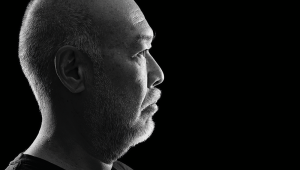
The Women Centred Working initiative can demonstrate the value of what is called the ‘women centred’ approach in transforming the lives of tens of thousands of vulnerable women, through pioneering community-based projects across the UK.
At a time when public services are under intense pressure to meet statutory responsibilities and manage risks within a context of budget cuts, there is also strong business case for doing things in a women centred way.
Domestic violence, sexual abuse, offending behaviour, homelessness, poor mental and physical health, and substance misuse are among the profound and inter-related problems experienced by disadvantaged women. Taking a women centred approach enables women to unlock their own solutions to these complex problems by accessing integrated, multi-agency support.
Public services have made great progress in breaking down silos and pooling resources for shared outcomes – and the principles of the women centred way of working can assist in this push towards greater innovation, prevention, efficiency and cost effectiveness. Local authorities are in a unique position to bring local partners together to consider the role gendered working can play in transforming services. Case studies in our new guide Taking Forward Women Centred Solutions show the powerful results that can be achieved when councils and their partners join together to do things in a more women centred way.
So, how can women centred approaches deliver better financial value?
Firstly, offering holistic services that are based around real situations experienced by women who are leading troubled, chaotic lives saves money by avoiding service duplication. Research shows that the same woman might be in contact with 15 services in different locations before accessing the support she needs. This presents an expensive series of revolving doors. By contrast, research by the New Economics Foundation shows that grant-holders in a single location identified estimated savings of £1.62m from reduced demands on services, including housing and social services, resulting from holistic community-based support for low risk female offenders.
Women are generally the main carers in families. The disproportionate cost of services to families with severe and complex needs is a major concern and the number of looked after children is at its highest in 30 years. The same women are often found circling around drug and alcohol, mental health and homelessness services, courts and child protection meetings. By building their confidence, coping strategies and their capacity to become better parents and to protect their children, it is possible to generate savings by breaking cycles of inter-generational disadvantage.
Importantly, being women centred means a ‘trauma informed’ ethos, which recognises the abuse vulnerable women have often suffered during their lives. Of course men can also experience abuse and have specific gendered needs, but statistically women and girls are much more likely to suffer domestic, physical and sexual abuse that causes ongoing trauma, as Agenda’s recent Hidden Hurt report shows. Recognising that trauma, and having the expertise to address it, enables staff in women centred projects to help women reach long-term multiple outcomes by getting to the root causes of complex issues.
So being women centred does not necessarily require extra funds – it is more about changing cultures, streamlining processes and thinking about prevention. Accessing appropriate support at crucial points in women’s lives stops problems spiralling out of control and requiring much more expensive crisis interventions.
The Way Forward project for women at risk aged between 16 and 24, run by WomenCentre Calderdale and Kirklees, is an excellent example of this. The project’s multi-agency steering group includes representatives of Calderdale Council’s Early Intervention service, youth offending, substance misuse, homelessness and young people’s services. Instead of having to navigate through fragmented services with high access thresholds and long waiting lists, each young woman develops a relationship with a single engagement worker, whose role is uniquely flexible. Evaluation by Leeds Beckett University shows how 135 young women involved in the project reduced their risk-taking behaviour and went on to jobs and courses. It found the role of engagement staff was a cost-effective option compared with, for example, £59 per hour for qualified social worker time.
The business case for women centred working can be made simply with the real-life example of Sarah and her son Harry (not their real names). Sarah was 19 when she was referred to the Way Forward. She had suffered sexual abuse as a child, had two violent long-term relationships, was using drugs and living a chaotic lifestyle. She felt fearful in her home, self-harmed and suffered from post traumatic stress disorder. The engagement worker helped her get rehoused, build a healthier circle of friends and talk about sexual health, past abuse, the behaviour of her current boyfriend and concerns about lack of appropriate care and safety for her son during his weekend stays with his father. After two years, she had overcome numerous challenges around positive parenting, developing safe personal boundaries in relationships and managing her home, and was on a college course.
The total cost of working with Sarah through the Way Forward was £4,120, including engagement worker time, supervision, risk management, organisational overheads, Sarah’s involvement in a domestic violence programme and steering group input. Rudimentary maths shows the price of not helping Sarah in this way would have been much higher. To note a few estimates, using statistics from the Cabinet Office’s Social Investment Bond Knowledge Box, three incidents of domestic violence would have incurred costs of £11,824 and drug misuse £4,541. Most significantly, had Sarah not been able to parent and protect Harry adequately, the cost of statutory care could have amounted to £52,676.
Being women centred can also bring people who design services closer to women who use them, enabling dialogues to help plan services around what works. Oldham Council’s Early Help model is now creating a space from which it can ask women critical questions and co-produce services that will make a difference in the long term. This is positive news for women, families and communities and can also benefit the public purse.




















